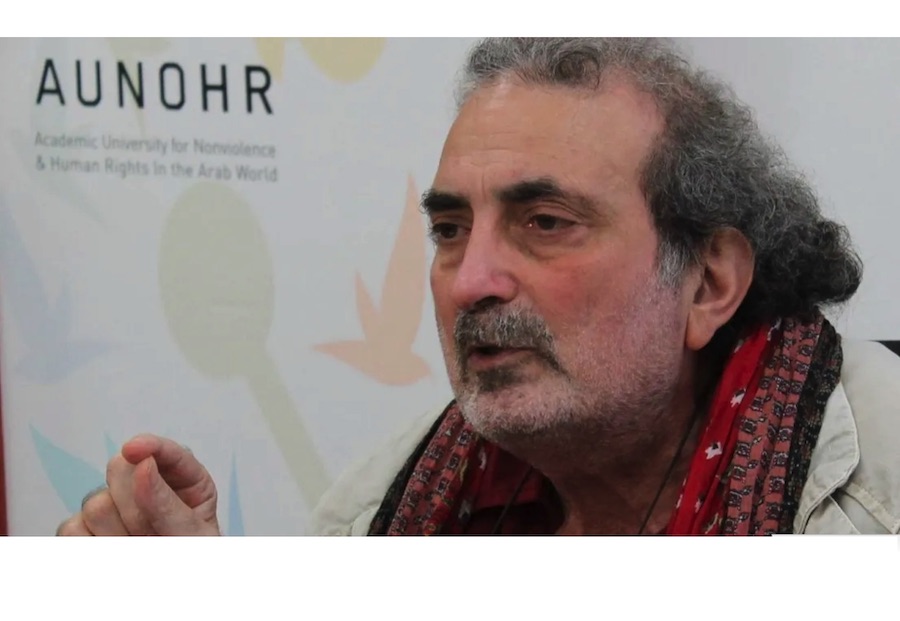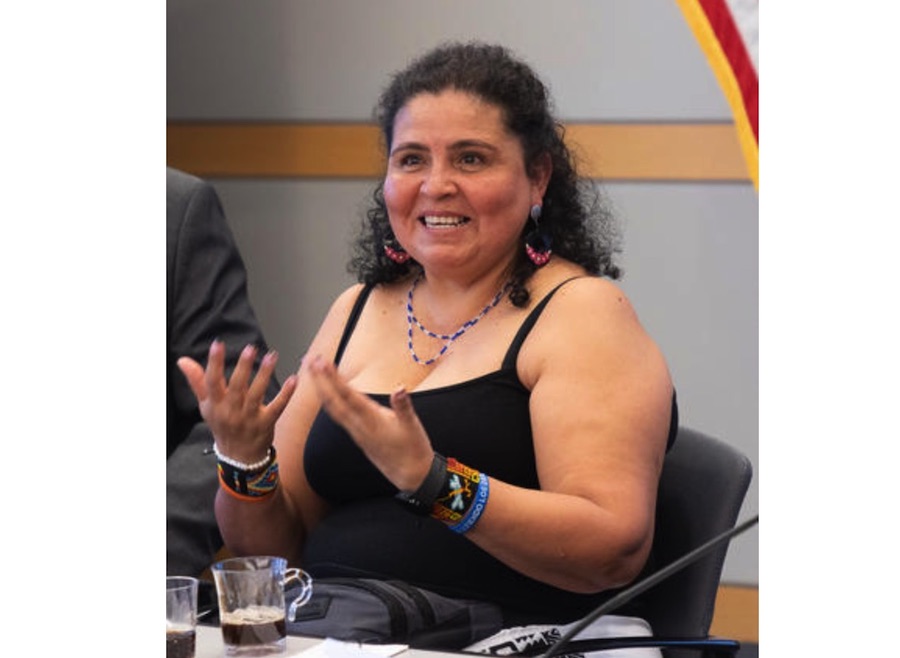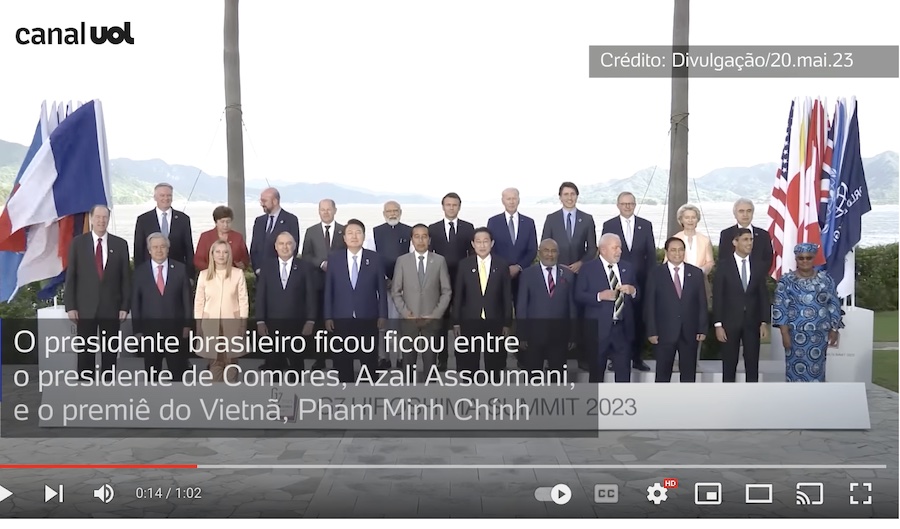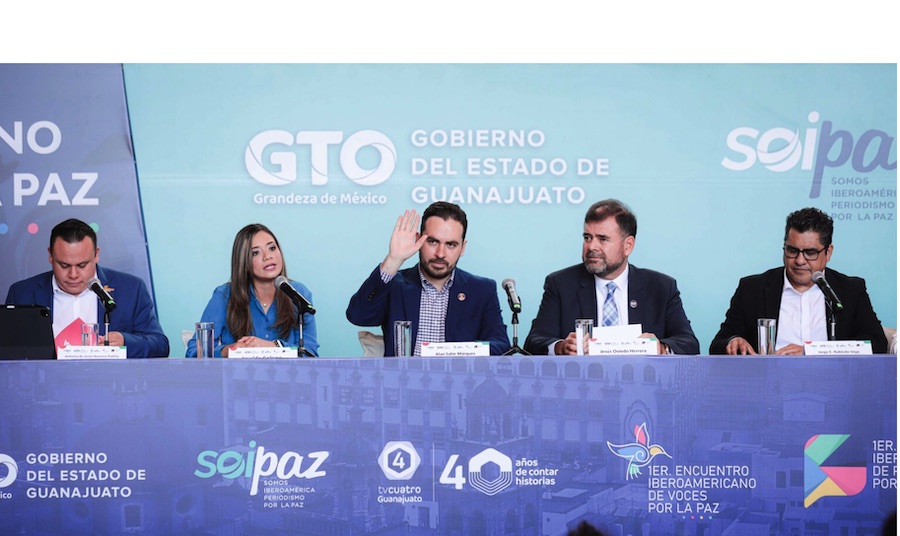FREE FLOW OF INFORMATION .
An article by Norman Solomon in Common Dreams (republished according to Creative Commons CC BY-NC-ND 3.0)
When Daniel Ellsberg died on Friday, (June 16) the world lost a transcendent whistleblower with a powerful ethos of compassion and resolve.
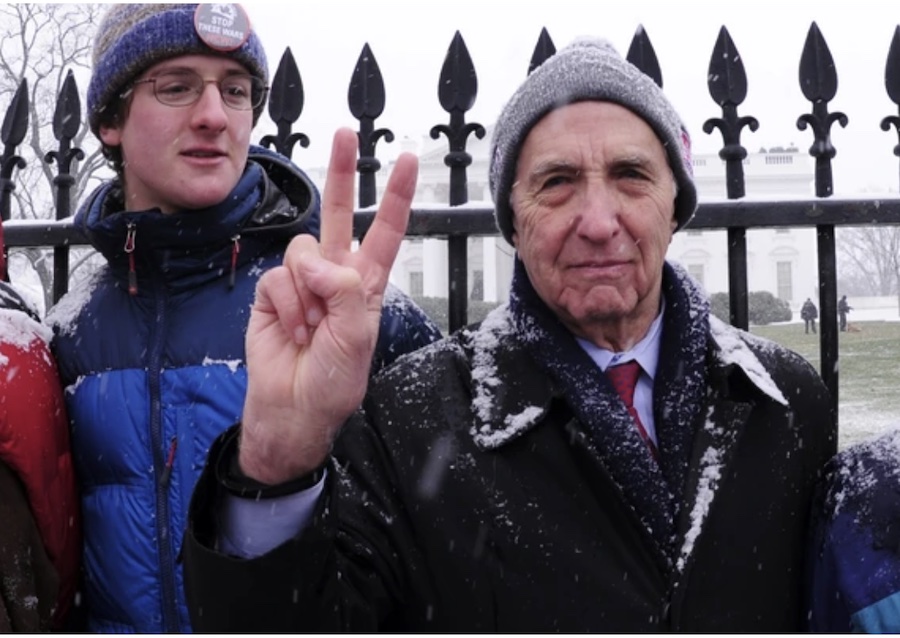
Daniel Ellsberg giving the peace sign in front of the White House during a 2011 demonstration calling for the end of the war in Afghanistan.
(Photo credit should read Karen Bleier/AFP via Getty Images)
Ellsberg’s renown for openly challenging the mentalities of militarism began on June 23, 1971, when he appeared on CBS Evening News ten days after news broke about the Pentagon Papers that he’d provided to journalists. Ellsberg pointedly said that in the 7,000 pages of top-secret documents, “I don’t think there is a line in them that contains an estimate of the likely impact of our policy on the overall casualties among Vietnamese or the refugees to be caused, the effects of defoliation in an ecological sense. There’s neither an estimate nor a calculation of past effects, ever.”
And he added: “The documents simply reflect the internal concerns of our officials. That says nothing more nor less than that our officials never did concern themselves with the effect of our policies on the Vietnamese.”
Ellsberg told anchor Walter Cronkite: “I think we cannot let the officials of the Executive Branch determine for us what it is that the public needs to know about how well and how they are discharging their functions.”
The functions of overseeing the war on Vietnam had become repugnant to Ellsberg as an insider. Many other government officials and top-level consultants with security clearances also had access to documents that showed how mendacious four administrations had been as the U.S. role in Vietnam expanded and then escalated into wholesale slaughter.
Unlike the others, he finally broke free and provided the Pentagon Papers to news media. As he said in the CBS interview, “The fact is that secrets can be held by men in the government whose careers have been spent learning how to keep their mouths shut. I was one of those.”
(Article continued in the column on the right)
Where in the world can we find good leadership today?
The courage of Mordecai Vanunu and other whistle-blowers, How can we emulate it in our lives?
How can we carry forward the work of the great peace and justice activists who went before us?
(Article continued from the column on the left)
Ellsberg’s mouth, and heart, never stayed shut again. For the 52 full years that followed his release of the Pentagon Papers, he devoted himself to speaking, writing, and protesting. When the war on Vietnam finally ended, Ellsberg mainly returned to his earlier preoccupation—how to help prevent nuclear war.
This spring, during the three months after diagnosis of pancreatic cancer, Ellsberg made the most of every day, spending time with loved ones and speaking out about the all-too-real dangers of nuclear annihilation. He left behind two brilliant, monumental books published in this century—“Secrets: A Memoir of Vietnam and the Pentagon Papers” (2002) and “The Doomsday Machine: Confessions of a Nuclear War Planner” (2017). They illuminate in sharp ghastly light the patterns of official lies and secrecy about military matters, and the ultimate foreseeable result—nuclear holocaust.
Ellsberg was deeply determined to do all he could to help prevent omnicide. As he said in an interview when “The Doomsday Machine” came out, scientific research has concluded that nuclear war “would loft into the stratosphere many millions of tons of soot and black smoke from the burning cities. It wouldn’t be rained out in the stratosphere. It would go around the globe very quickly and reduce sunlight by as much as 70 percent, causing temperatures like that of the Little Ice Age, killing harvests worldwide and starving to death nearly everyone on earth. It probably wouldn’t cause extinction. We’re so adaptable. Maybe 1 percent of our current population of 7.4 billion could survive, but 98 or 99 percent would not.”
During the profuse interviews that he engaged in during the last few months, what clearly preoccupied Ellsberg was not his own fate but the fate of the Earth’s inhabitants.
He was acutely aware that while admiration for brave whistleblowers might sometimes be widespread, actual emulation is scarce. Ellsberg often heard that he was inspiring, but he was always far more interested in what people would be inspired to actually do—in a world of war and on the precipice of inconceivable nuclear catastrophe.
During the last decades of his life, standard assumptions and efforts by mainstream media and the political establishment aimed to consign Ellsberg to the era of the Vietnam War. But in real-time, Dan Ellsberg continually inspired so many of us to be more than merely inspired. We loved him not only for what he had done but also for what he kept doing, for who he was, luminously, ongoing. The power of his vibrant example spurred us to become better than we were.
In a recent series of short illustrated podcasts created by filmmaker Judith Ehrlich—who co-directed the documentary “The Most Dangerous Man in America: Daniel Ellsberg and the Pentagon Papers”—Ellsberg speaks about the growing dangers of global apocalypse, saying that nuclear war planners “have written plans to kill billions of people,” preparations that amount to “a conspiracy to commit omnicide, near omnicide, the death of everyone.” And he adds: “Can humanity survive the nuclear era? We don’t know. I choose to act as if we have a chance.”



